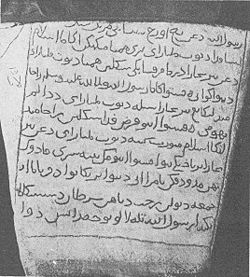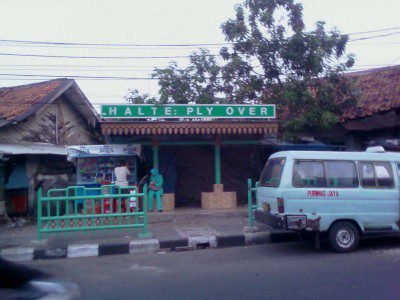His grandmother turns towards him and says, “Cepat! Bus dah nak datang. Cepat pakai sepatu.” As she says this, she points her finger towards the pairs of school shoes and socks which are lying near the door, one hand holding the keys and the other carrying the school bag. The boy remains seated at the breakfast table, barely understanding the language uttered but recognises the body language and stern intonations of his grandmother’s voice. He hastens, finishes his glass of milk and hurries over to put on his socks and shoes. His grandmother says again, “Bus pass mana?!” He replies in pigeon English, “Inside bag. Ada inside.”
A grandmother who is Chinese, speaks to her grand-daughter, in pigeon English, “Don do dad. You bang your head later.” (Dont’ do that. You may knock your head on the steel rod.) As she says this, she grabs the young child by the wrist and pulls her away and leads her to a safer spot.
It is obvious. Children who attend schools which use English as the medium of instruction for all core subjects (maths, science, literature, history), are showing lack of ability to communicate with their grandparents and parents who did not study English.
About Mum’s Influence On Language Development

My mum was born in 1929. She speaks in Malay and has no problem understanding English, Hokkien, Malay and Bahasa Indonesia. She reads and writes only in Bahasa Jawi, or Arab ‘gundol’. Her telephone book is filled with names of relatives and friends written in Bahasa Jawi, and we can only hope to guess who they are by the area code of the telephone number. She even signs her name in Bahasa Jawi.
When I was a kid, I could easily find other children who could not speak English to play with. My childhood was more adventurous and fun as I found myself immersed in a totally new environment when I came home from school.
Go For Your Goals, Raising Happy Kids.
However, there is less opportunity these days to learn a local dialect from locals. Everybody speaks English, Malay, Mandarin or Tamil. Many either prefer or have to use English on a daily basis. This is why the term ‘Singlish’ came about, a brand of English spoken by Singaporeans.
Mum’s resilience to preserve her native language, culture and custom has paid off in terms of educating her own children to do the same, albeit in a more diluted form. We speak and eat Malay food at home. We eat rice meals with our fingers and only use the fork and spoon to eat noodles and soup; we do not use any knife, the spoon replaces it.
I realise that her language has been useful to communicate the meaning of her culture and custom; like ‘baju kurong’, ‘batu lesung’, ‘satay ayam’, ‘sop ayam’ etc. There is no other language that can substitute for the names of the culture and custom that are unique to that native language. Even if we try to call Baju Kurong the Malay traditional costume (when it is not a costume but everyday wear) or Batu Lesung the pounder, the new terms do not capture the full meaning and sentiment of the native origin.
The native language or mother tongue, will be preserved if we allow ourselves to preserve the culture, traditions and customs, and avoid using non-native terms to substitute the naming of these. I am lucky to be raised by parents who live and breathe natively despite expectations from society to behave otherwise. My turn has come. To the best of my ability and knowledge, I hope to deliver.
Endangered Languages Are Pigeon-ised
Alas! The popularity of languages used in the commercial world has led to the push for learning of only certain languages to aid so called growth and development of a society or community. Children are led away from their native environment by this mere fact that the medium of instruction at schools have to comply with the need of the ‘so called’ productive future generation. The influence can be overwhelming: television, radio, billboards, magazines, food packagings and labels have to follow standards.
In countries such as Indonesia and Singapore, some English phrases have been rephrased to gel with the local lingo and pronunciation. In Indonesia, “prospect” becomes prospek, fly over becomes ply over, transportation becomes transportasi, etc. Singlish is synonymous to English spoken by Singaporeans (namely those who speak Chinese dialects like Hokkien, Cantonese, Malay or Tamil). No where else in the world can you find the emergence of a language so unique and cleverly fashioned.
What about Spanglish? Does anyone know this one? Ricky Martin sang a Spanglish version of Maria. Remember that one? Learn to speak Spanish and you may just understand why it so.
If you are one with a sense of humour, you will not attempt to correct but submit to the humour which the society has been willing to write upon itself.
Other references: Endangered Language



You are so right. I think in the 3-4 decades a lot of languages will die off. I think the scripts will go before the languages in many cases. Already because of the use of computers, people have moved to writing their native languages using English script.
I think you have made some very pertinent observations in this post.
I sent a note to IVS after his comment was moderated. Reportedly there are 199 dialects in India that are on the list of endangered languages. The number is indeed very high.
A friend of mine living in Australia thinks this is a losing battle. Well guess what my response is?
Response from my twitter.
@iSoozee Thanks. Yet if I keep eating chillies, use my fingers to eat, pray 5 times a day, do yoga, eat fish heads, half the battle is won.